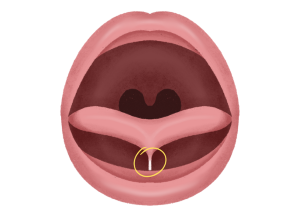Information about breastfeeding twins and triplets, low tone and tongue tie.
Breastfeeding twins and triplets

It's perfectly possible to breastfeed twins, triplets or more. Lots of twins are breastfed until they start eating solid foods and beyond. You may need some extra support with different positions to try. Your midwife and support staff can support you with this.
You can find more information and support from the Breastfeeding Twins and Triplets UK charity website (opens in a new tab).
Low tone - babies with special needs
Breast/chest feeding a baby with low tone needs realistic expectations and some extra patience. If your baby is born with Down syndrome they may struggle with low tone, tongue thrusts and a weak suckle. This can affect baby’s ability to breastfeed.
It is important to offer good head support when breast/chest feeding a baby with low tone. Your baby may also need support with their jaw when feeding. You could try using the Dancer Hold when breast/chest feeding your baby.
Hold your arm opposite the breast you’ll be offering. Using the hand on the same side as the breast you are offering, cup your breast with your thumb on one side of the breast, palm beneath, index finger pointing outward, and the other three fingers on the other side of the breast. Use your index finger to support your baby’s lower jaw while nursing. As your baby’s muscle tone improves through breastfeeding and maturity, he will become able to support himself and breastfeed more effectively.
Tongue tie
Tongue tie (also known as ankyloglossia) is when the tongue is restricted. This is caused by the frenulum (piece of skin underneath your tongue) being too tight or too short. It can also cause the tip of the tongue to look forked or have a heart-shaped appearance.

How can a tongue tie affect breastfeeding?
Some babies with tongue tie can breastfeed or bottle feed without any problems. But for some, it can make feeding more difficult. Your baby might:
- Have trouble latching to the breast
- Come on and off the breast often
- Feed for a long time and still seem hungry
- Make clicking sounds when feeding
- Cause sore nipples
Can a tongue tie impact speech?
Tongue tie does not usually affect speech. You can have tongue tie and have normal sounding speech. There is no evidence that a tongue tie is related to delayed speech or language skills.
What happens if we think your baby has tongue tie?
A midwife or infant feeding specialist will start by watching a feed and providing feeding support. If we think that your baby may have a tongue tie, and that this is impacting feeding, we can refer you on to clinic 6 for a tongue tie assessment.
The infant feeding team will continue to support you with feeding whilst waiting assessment and after to help you meet your feeding goals.
At the appointment, the surgeon will check your baby’s mouth and talk to you about the next steps. Sometimes a small quick procedure called frenulotomy can help.
Who to talk to
If you are worried about feeding or think your baby might have a tongue tie, please speak to your midwife or health visitor who can provide support and then refer you to the infant feeding team if extra support is required. We are here to help you and your baby.
Breastfeeding Patient Story
Link: https://youtu.be/i3JOecgZ26o?feature=shared

